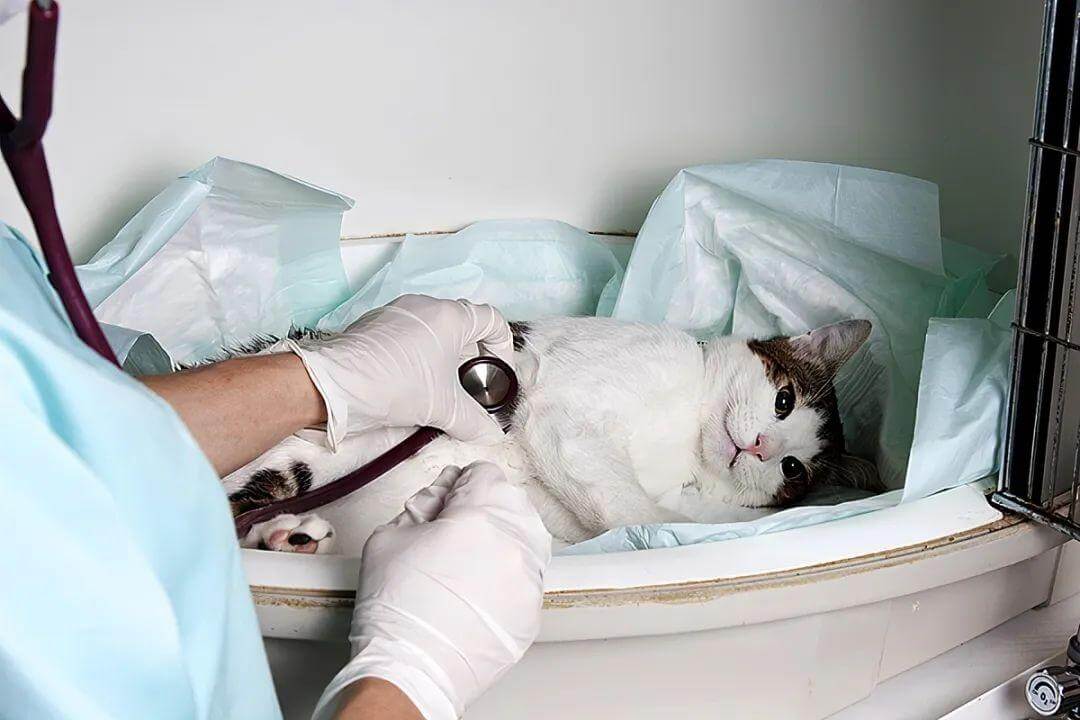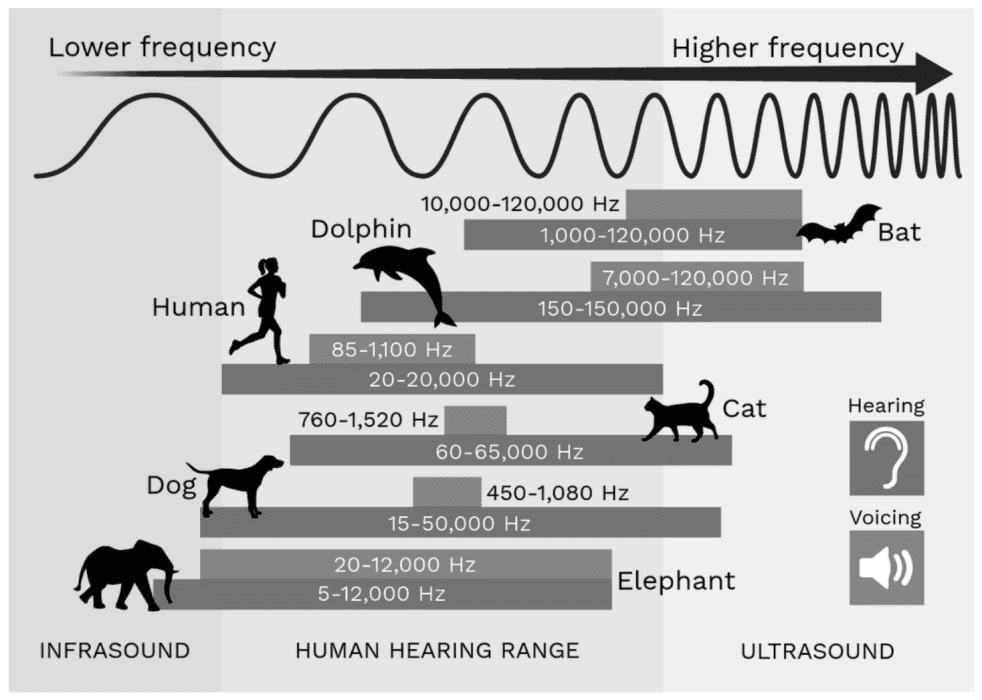Music plays a vital role in human life, but have you ever wondered how your cat experiences the sounds you play at home? While we find comfort and joy in melodies and rhythms, cats perceive sound very differently. Some pet owners notice their cats seem soothed by music, while others find their feline friends indifferent or even unsettled. So, do cats actually enjoy music—and can it help calm them or ease separation anxiety when you’re away?
Scientific research reveals that although most cats don’t respond to typical human music, they do show positive reactions to music tailored specifically for their unique hearing and emotional needs. In this article, we’ll dive into how music affects cats, the types of sounds they prefer, and how you can use music as a gentle tool to help your cat relax and feel more secure.
In This Article
01 Can Music Affect a Cat’s Mood? Scientific Evidence
Many cat owners have noticed that their pets seem relaxed when exposed to soft sounds, while loud noises can startle or stress them. But does this mean music can truly influence a cat’s emotions? Scientists have conducted several studies to find out.

Study 1: Music and Stress Reduction in Cats
In 2021, Juliane EG Paz and colleagues conducted a study to determine whether playing music could reduce stress in hospitalized cats. The research included 35 cats, all experiencing high levels of stress due to their unfamiliar environment.
How the Study Worked:
- The cats were divided into two groups: one group listened to cat-specific music, while the other had no music exposure.
- Music sessions were played for four hours daily over a 31-hour period.
- Researchers measured stress indicators like respiratory rate, saliva cortisol levels (a stress hormone), and social interactions with humans.
Response to Cat Music
- Cats who listened to cat-specific music showed more positive interactions with veterinarians during examinations (P < 0.05)
No Significant Change
- Overall stress scores remained similar between both groups
Study 2: Do Cats Have Musical Preferences?
In 2015, researchers from the University of Wisconsin (Snowdon, Teie & Savage) tested 47 pet cats to see if they preferred human music or music designed for cats. The cats were exposed to two different types of sound:
- Classical human music
- Music specifically composed for felines, which included purring-like vibrations and high-pitched tones similar to cat vocalizations
Response to Cat Music
- Cats responded significantly faster to music designed for them—sometimes within just 3 seconds
- They physically moved closer to speakers playing feline music
- Researchers concluded that cats are more likely to enjoy music that mimics the sounds they naturally recognize
Response to Human Music
- Showed little to no interest in classical human music
02 Do Cats Need Music? Understanding How Cats Respond to Sound
Most cats don’t actually need music to feel comfortable. Many cats are perfectly happy in quiet environments and can adapt well to being alone without music playing. If your cat doesn’t show signs of separation anxiety or stress, adding music is usually unnecessary.
However, some cats do benefit from certain types of sounds. Research and pet owner experiences suggest that music specially designed for cats or even white noise can help calm anxious felines, especially when their owners are away. White noise acts as a continuous, soothing background sound that can mask sudden noises—like fireworks or thunderstorms—that might otherwise scare them. This can reduce stress and help with separation anxiety.
03 Why Don’t Cats Like Human Music—and What Do They Prefer?
Most cats ignore human music—not because they dislike sound, but because their hearing and emotional triggers are very different from ours. Understanding how felines perceive sound helps explain both their disinterest in human music and the types of sounds they actually enjoy.

- Different Frequency Sensitivity: Humans hear between 20 Hz and 20,000 Hz, while cats can detect sounds up to 64,000 Hz. They are more sensitive to higher-pitched sounds that we can’t even hear.
- Different Vocalization Patterns: Human music is structured around speech patterns and familiar tempos. Cats, however, communicate using meows, purrs, and chirps that exist in a much higher frequency range with different rhythmic structures.
- Emotional Association:Soft piano music might relax a person, but it may do little—or even irritate—a cat. Cats are more emotionally responsive to sounds that resemble their own vocal cues or biological rhythms.
What Kind of Music Do Cats Actually Enjoy?
So, what kind of music do cats actually enjoy? Based on scientific findings and pet owner observations, here are the traits of feline-friendly tunes:
- High-Frequency Tones: Avoid deep bass. Cats respond more positively to higher-pitched tones and gentle gliding sounds.
- Imitation of Cat Sounds: Music that includes elements like purring-like vibrations, bird chirps, and glissando (sliding tones) tends to catch their attention and produce calming effects.
- Faster Yet Steady Rhythms: A cat’s relaxed heart rate is around 120–140 BPM. Music that mirrors this rhythm may feel more natural and soothing to them than human songs based on slower tempos.
04 How to Introduce Your Cat to Music
Ensuring your cat feels happy and relaxed is key before playing any music. If your cat is already stressed, music could increase their anxiety rather than soothe them. Learn to read your cat’s body language to judge whether they are calm and comfortable.
Create a safe escape route so your cat can leave the music if they feel overwhelmed. Keep doors open and provide quiet hiding spots in other rooms, as hiding helps cats reduce stress.
Start with the volume very low to avoid startling your cat with sudden loud sounds. If your cat remains calm and seems to enjoy the music, gradually increase the volume to a comfortable level—never too loud, as this can scare them.
Watch your cat’s reactions carefully. If they appear happy and relaxed, they might actually enjoy the music. However, if you notice signs like flattened ears, tense body posture, or your cat leaving the room, it’s a signal they prefer a quieter environment.
How to Test If Your Cat Likes Music
Curious whether your cat enjoys music? Try this simple experiment and observe their behavior:
Start with a few options—cat-specific music, classical, or ambient—and see how your cat reacts.
If your cat purrs, rubs against the speaker, or lies nearby, it’s likely enjoying the music.
Flattened ears, tail flicking, or walking away may mean your cat finds the music unpleasant.
Every cat is different, so it may take time to find the sound that suits your feline friend best.
05 Personalized Cat Music with AI — Try It Yourself!
Based on these insights, you can create or find music tailored specifically for your feline friend’s preferences. Tools like LitMusic enable you to input your cat’s favorite music style, rhythm, and mood, and generate custom tracks designed to relax and entertain your cat. This way, you can ensure your cat enjoys music that truly suits their unique tastes.
Ready to see what kind of music your cat will love? Try generating personalized cat music with LitMusic today and watch your furry friend respond to sounds made just for them!
06 Best Cat-Friendly Music Recommendations
If you want to create the perfect playlist for your cat, here are some scientifically tested and pet owner-approved choices:
Cosmo’s Air
Used in the 2015 feline music study, this song has a purring frequency of 1380 beats per minute, similar to a cat’s natural vibrations.
David Teie’s /Music for Cats/Album
A collection specifically composed with purring, bird sounds, and feline-friendly tones. The most recommended track is "Opus for Oliver".
YouTube/Spotify Playlists
"Cat Relaxing Music" or "Music for Cats" to find playlists designed to calm and comfort felines.
Instrumental Classical Music
Some cats respond well to soft piano or violin pieces with gentle melodies.
Conclusion: Do Cats Enjoy Music?
Cats can enjoy music—but only when it’s tailored to their unique hearing and emotional preferences. While most cats tend to ignore or be indifferent to typical human music, they respond positively to sounds that mimic their own vocalizations, such as purring, bird chirps, and other high-frequency tones. Music with steady rhythms matching their natural heart rate can also help them relax.
If you want to create a calming environment for your feline friend, consider playing music specially composed for cats rather than regular human songs. This targeted approach can reduce stress, ease anxiety, and maybe even become your cat’s new favorite soundtrack.
Try AI-Generated Music for Your Cat!
Discover music created just for cats with LitMusic. Simply choose your cat’s preferred sounds, rhythms, and moods, and LitMusic will generate soothing, custom tracks designed to keep your feline calm and happy. Try it today and see what melodies your cat loves!































